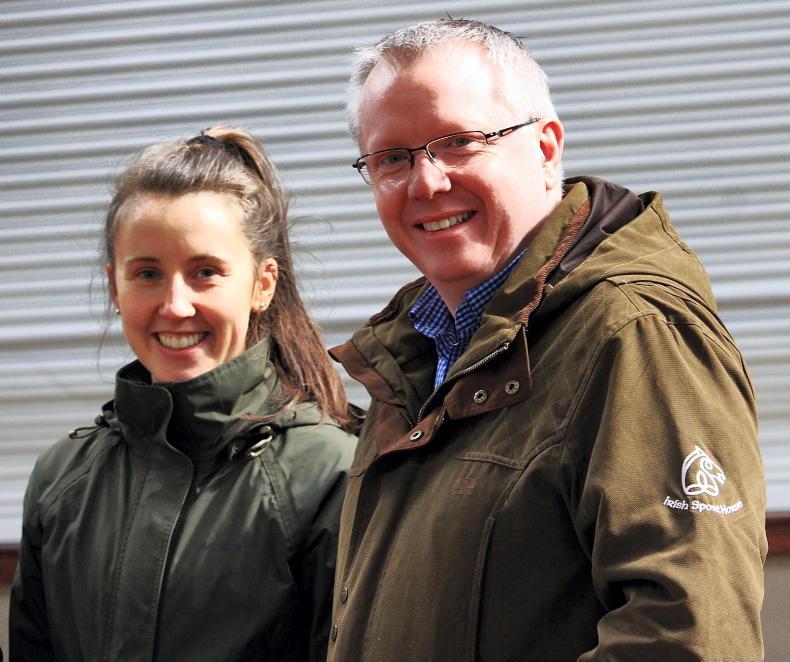THE new e-passport system, Horse Source, officially launched by Horse Sport Ireland (HSI) this week will, according to the governing body, make the process of applying for passports, change of ownership and other key functions easier and quicker with less room for error.
HSI CEO Denis Duggan told The Irish Field that while it was “regrettable” that there was a delay of about one month in launching the new website, the system has been soft launched over the last two weeks. “The reaction we have received from our customers since launch has been tremendously supportive of our digital e-passport. We are deeply appreciative to the 300 randomly selected breeders that were involved in early July in tests of the Horse Source, and equally appreciate the significant volumes where more than 2,500 customers have used Horsesource.ie since launch earlier this week. I want to thank all those customers and breeders for their business, and their patience during this transition.”
As reported on page 66, Duggan has given a commitment to breeders and foal owners that passports will be turned around in four to six weeks.
“For a breeder that applies through Horsesource.ie, where the sire and the dam are already DNA tested, the turnaround time will be between four to six weeks. That’s the guarantee we can give.”
The overall reaction to the new system from breeders has been positive although the cost, which is due to increase again on September 1st is a cause of concern. The price of registering a foal with pedigree and naming is €130, plus 23% VAT, finishing up at €159.90. From September 1st, that will increase by 15.5% to €184.50.
How does it work?
On www.horsesource.ie, breeders are invited to create an account – even if previously registered with an IHR account – they must have the microchip or Unique Equine Lifetime Number (UELN) of the animal and users must also have an active and verified Equine Premises Registration Number (EPRN).
Duggan explained that Horse Source has a validation check, through an API with the Department of Agriculture, so you cannot input an incorrect EPRN. “There are hard stops now on the online system that won’t allow a breeder to make errors, which was happening on the paper system.”
Breeders will have to add their mares to their list or profile before registering their foals, and the mares will then be saved for future use. There is a track and trace function available for those who choose to have the passport posted to them via DPD at a cost of €12.
Duggan said the time it takes to register a foal is about four minutes. “If the breeder sits down, they have their microchip or their UELN, and they have their card details for payment, it is literally a matter of minutes from the time they start their application until the time we’re receiving it on the other end.”
What about breeders who are not familiar with working online? A paper application will still be accepted, at a surcharge of €25. Duggan said: “We’re encouraging everyone to do the online application. I think there is a narrative that there’s a lot of people in the sector that don’t have the IT skills, but the central bank had a report recently published that 95% of the adult population are banking online.
“If you can bank online, you can use Horse Source. If you can do your motor tax online, you can use Horse Source. We’ve built a system that incorporates some of the best of those technologies. A bit like the motor tax, you need to have your UELN, and a bit like Deliveroo, you’ll be able to track your passport!”
Change of ownership
Breeders and horse owners can apply for change of ownership through Horse Source, which Duggan said “should be very straightforward and simple. We don’t have a timeline on it, but the longest delay through the online system with a change of ownership will be actually posting it in and posting it back.
“While it’s an online e-passport system, Breeders still need to update the paper document. Under the current EU legislation, the paper passport still is considered to be the primary document. Our belief is that that will change.”
Failed hair samples was another issue that slowed down registrations. Duggan same there are “smarts” built into the IT system, so when a person logs on, the system will tell them whether additional samples are required for the sire or dam.




 This is a subscriber-only article
This is a subscriber-only article
 It looks like you're browsing in private mode
It looks like you're browsing in private mode










SHARING OPTIONS: